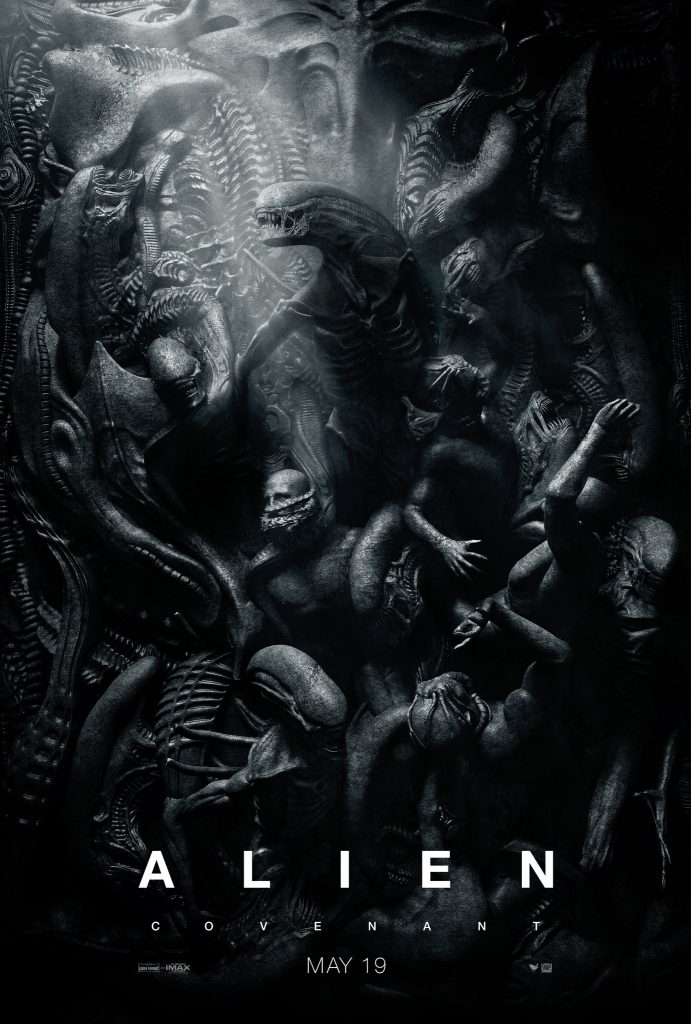Alien Covenant Delivers More Groans Than Scares

PHOTO COURTESY OF TWENTIETH CENTURY FOX
During Ridley Scott’s Prometheus, the crew attempts to revive an alien’s 2000-year-old decapitated head. During the process, the alien’s eyes open, sputtering and gurgling up blood. It’s confused and scared. The alien’s head bubbling and twitching. As the crew expects it to say something, the head explodes, leaving the lab a mess and the crew disappointed.
Scott’s Alien: Covenant is the severed head in this scenario, and the crew’s disappointment is the audience’s own feelings watching this. In trying to revive the Alien franchise, Scott breaks his promise to fans by producing a film as coherent and graceful as the garbling of the aforementioned alien head.
Alien: Covenant, the sequel to Prometheus (2012), follows the crew of the Covenant, a spaceship filled with colonists en route to a faraway planet. Walter (Michael Fassbender), the ship’s android, watches over the colonists during the journey. After a bizarre space anomaly causes the ship to malfunction, the Covenant’s crew receives a distress message from an unexplored planet. Despite protests by the ship’s second- in-command Daniels Branson (Katherine Waterston), Covenant captain Christopher Oram (Billy Crudup) leads a scouting expedition on the unknown planet.
The film’s narrative is then divided between xenomorphs (the scary aliens that appear in all the films) hunting the Covenant’s crew and the personal story of David 8, a character from Scott’s Prometheus who’s also played by Fassbender. However, Scott fails to manage these two stories seamlessly. Scenes of crew members being slaughtered by aliens are followed by philosophical conversations between David and Walter. Rather than feeling natural, these narratives are so stark in tone and purpose that they seem like two different films forced to share one.
The most menacing thing about Alien: Covenant is the writing. With the exceptions of Danny McBride, who plays Covenant pilot Tennessee Farris, and Fassbender, Alien: Covenant’s cast succumbs to a shoddy script. Character development is pushed aside in favor of the characters telling the audience what to notice. Everything, from major plot points to the quietness of the unknown planet is remarked upon, as if Scott is afraid these developments will slip past the viewer.
However, while Fassbender provides fantastic performances for both David and Walter, those expecting the David from Prometheus (or anything else related to Prometheus) will be disappointed. Elizabeth Shaw’s search for the meaning of creation and the Adonis-like Engineers are discarded in the film, with no hope for return, while David has shifted off-screen from an emotionally tormented android to a clichéd sci-fi Dr. Frankenstein.
Those expecting a movie akin to Scott’s Alien (1979) or James Cameron’s Aliens (1986) will also be disappointed. Scott abandons practical effects, using exclusively CGI to display the xenomorphs. Additionally, he places the xenomorphs in either open or heavily lit spaces, destroying any sense of claustrophobia or tension in the aliens’ appearance.
Coupled with a blue filter that robs the color and vibrancy of the film and a twist ending as subtle as a chestburster, there is little to differentiate Alien: Covenant from a standard summer blockbuster.



